Chapecoense crash: Bolivia official accuses bosses of cover-up
- Published
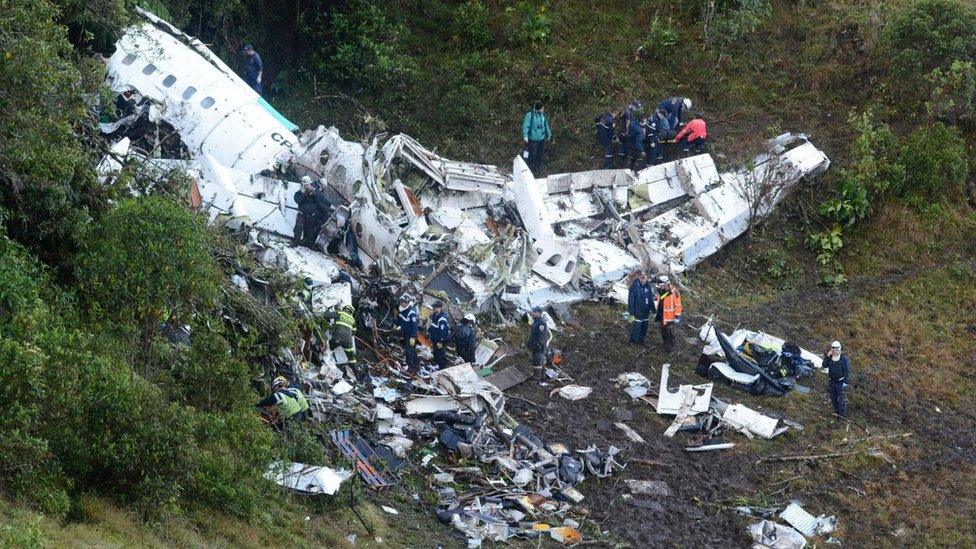
The crash killed 71 people and wiped out most of a Brazilian football team
A Bolivian aviation official says she was pressured by her bosses into changing a flight report she made for the plane that crashed last week with Brazilian team Chapocoense on board.
Celia Castedo told Bolivian media said she had warned that the plane had barely enough fuel to reach the destination in Colombia.
Ms Castedo is in Brazil where she is seeking asylum.
The crash killed 71 people, including most of the Chapecoense football team.
The plane was taking the team to Colombia for the final of a regional tournament when it ran out of fuel, plunging into a mountainside near the city of Medellin.
In a leaked tape, the pilot, Miguel Quiroga, can be heard warning of a "total electric failure" and "lack of fuel".
In her letter, external (in Spanish) published in the Bolivian media, Ms Castedo, who worked in air traffic control, said she had no authority to stop the doomed flight, saying that was with Bolivia's civil aviation agency.
She said that instead of authorising the flight, she had tried to stop it, accusing unnamed superiors of a cover-up.
"I was subjected to harassment and pressure from my superiors... who ordered me to change the content of the report which hours earlier [before the flight] I had presented," she wrote.
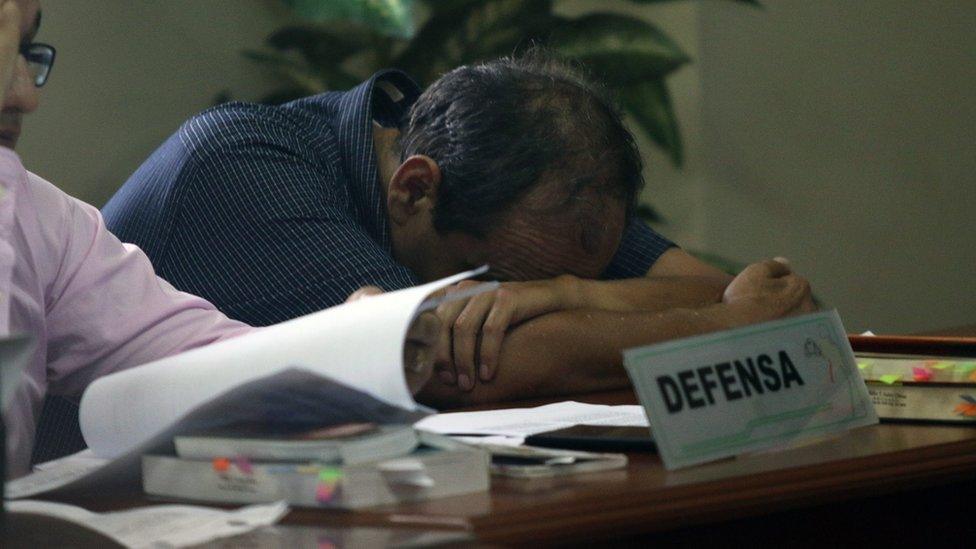
Gustavo Vargas (R), the boss of the flight's operator LaMia, has been arrested
"Based on a careful examination, I had made five observations, one of the most important of which referred to the fuel economy of the flight, which happened to be equal to the flight time."
Bolivia's Public Works Minister, Milton Claros, dismissed Ms Castedo's allegations.
"There were no observations made to the flight plan,'' Associated Press quoted him as saying, with the minister accusing Castedo of fabricating the document after the crash to cover-up her own errors.
Other Bolivian officials have urged the Brazilian authorities to return her, with one saying Ms Castedo was trying to escape justice.

The head of the flight's operator, Gustavo Vargas, has been arrested over the crash.
Just six people survived. One of them, crew member Erwin Tumuri, said an initial stop for refuelling in the northern Bolivian city of Cobija had been dropped by the pilot.
There was no warning to the crew or the passengers that the plane was facing electrical or fuel problems, Mr Tumuri told Brazil's Globo TV.
- Published3 December 2016
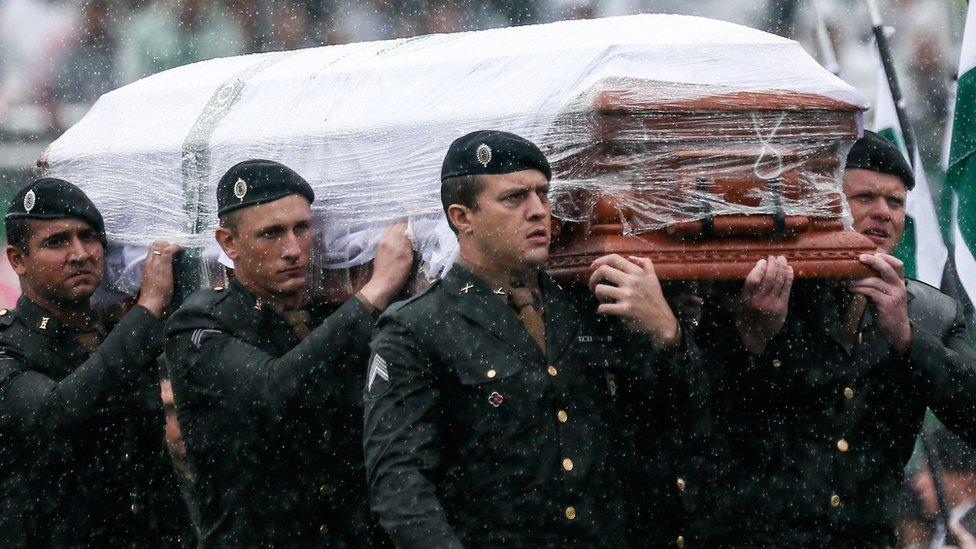
- Published2 December 2016
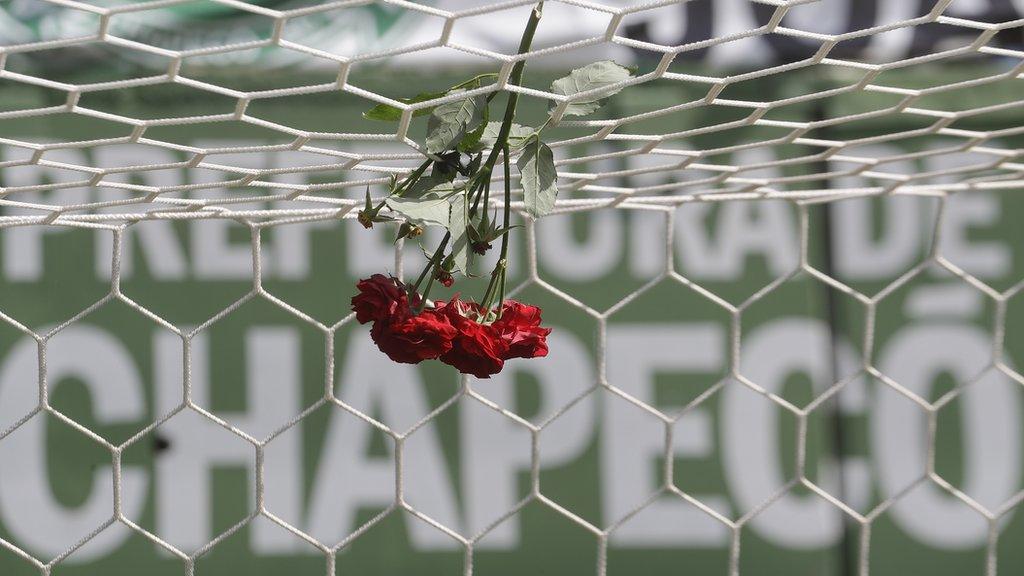
- Published2 December 2016
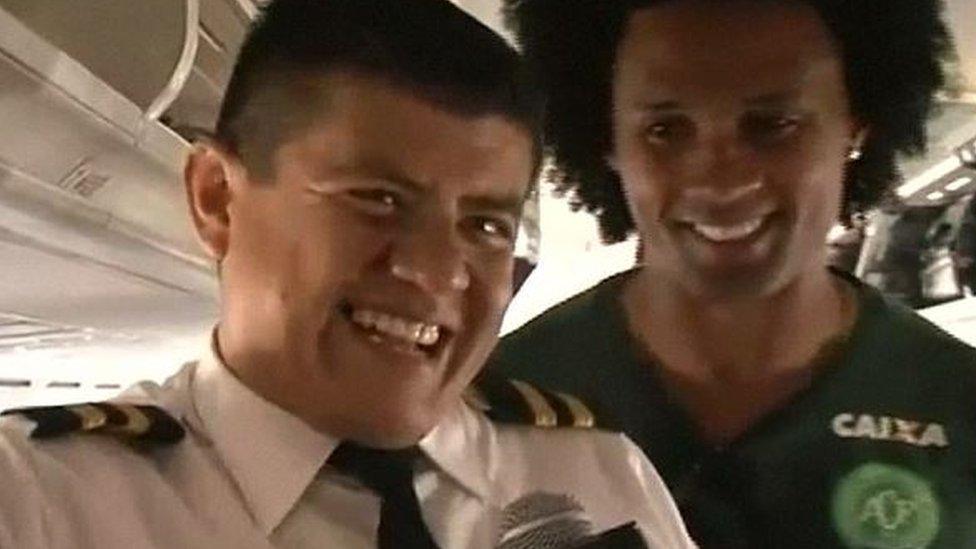
- Attribution
- Published29 November 2016
